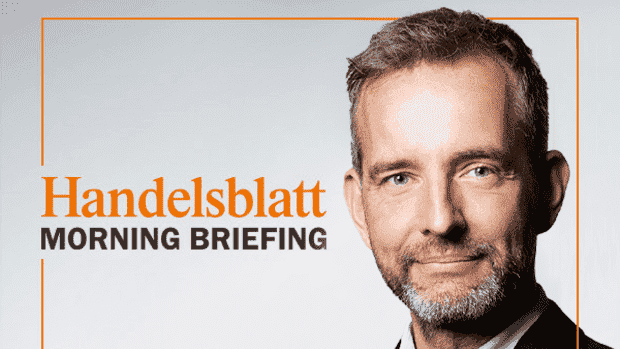Good morning dear readers,
it is one of the great riddles of capitalism: German goods are in great demand all over the world – to be read from the huge German foreign trade surplus. But the corporations that produce all of these glories are about as popular globally as three-year-old S.Oliver underpants on TK Maxx’s grave table.
The list of the 100 most valuable companies in the world, which our stock exchange expert Ulf Sommer compiles every year with the help of the Handelsblatt Research Institute, is impressive evidence of this misery.
Under the 100 largest companies In terms of market value, there are just two German groups – SAP in 78th place and newcomer Siemens in 93rd place. At the top, of course, the US tech industry dominates, the most valuable Arab company is the oil company Saudi Aramco, and the most valuable European is the French luxury manufacturer LVMH.
Top jobs of the day
Find the best jobs now and
be notified by email.
Experts like to justify the low presence of German companies in the top 100 with the local dominance of industry, which investors trust comparatively little growth.
But that does not explain why the price-earnings ratio (P / E) of the software company SAP is 19, but that of the US competitor Salesforce is 57. Or why Toyota is in 29th place in the ranking, but none of the three major German carmakers makes it into the top 100. And also not why the value of the industrial gas specialist Linde multiplied, hardly that it no longer traded as a German company.
Conclusion: “Made in Germany” is a seal of quality around the world. “Managed in Germany” evidently triggers the reflexes to flee from stock exchange traders.
Biontech is possibly the most promising contender for another regular German place in the Top 100. At least if the Mainz biotech stars keep their promise and, in addition to the world’s first corona vaccine, also bring new cancer drugs onto the market. Somewhat overshadowed by the corona pandemic, a true revolution is currently looming in oncology, as our pharmaceutical reporters Maike Telgheder and Siegfried Hofmann report: Scientists genetically arm the body’s own immune cells to destroy tumors.
This has already resulted in the cure of consecrated cancer patients in several cases. There are still many question marks about the new cancer therapies, but in any case, besides Biontech, several other German pharmaceutical start-ups are at the forefront of this medical revolution.
You don’t have to be a geopolitical expert to see: The conflict between Moscow and NATO over the sovereignty of Ukraine will be one of the very hot topics of 2022.
Russian Deputy Defense Minister Alexander Fomin warned Western military attachés against a war in Eastern Europe with unusual clarity. Speaking in Moscow, he said: “Lately the Alliance has shifted to a practice of direct provocation, which poses a high risk of escalating into armed confrontation.”
Fomin once again warned of Ukraine’s possible membership of NATO. The West is in a dilemma: the easiest way would be to meet the Russian need for a neutral Cordon Sanitaire in Eastern Europe, especially since Ukraine’s membership of NATO is not on the agenda anyway.
But the louder the saber rattle with which Moscow underpins this demand, the less it can move away from its position: namely that Ukraine’s sovereignty must not be restricted – and that this sovereignty can also include membership of NATO.
Conclusion: It is such constellations that give rise to wars that nobody really wants.
The situation is particularly tricky for Germany because it is connected to Russia via the Nord Stream 2 gas pipeline, which has been completed but has not yet been commissioned. Should Germany use this pipelineto put pressure on Moscow over Ukraine? Or are we too dependent on Russian gas to allow ourselves such a game of poker? Our department heads Jens Münchrath (international) and Jürgen Flauger (company) argue about this question – both opponents have good arguments.
Then there is the question I put to the friends at the Morning Briefing yesterday. We were looking for a term for the strange atmosphere during a Christmas freeway drive through the cloudy low mountain range.
Here are my personal favorites from your suggestions:
- “Drive through a funeral card”
- “Idleness in rough days”
- “Happy Insurance Christmas”
I wish you a nice rough day with just the right amount of idleness.
Best regards
Her
Christian Rickens
Head of Text Handelsblatt
You can subscribe to the Morning Briefing here:


